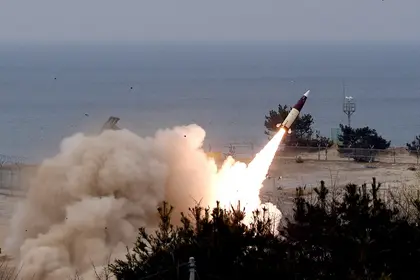The main problems facing the Ukrainian Parliament in wartime are limited transparency due to security issues and continued influence from former members of the now banned pro-Russian Opposition Platform – For Life party, according to new research.
These former members have still not been stripped of their status, although Putin ally and former faction leader Viktor Medvedchuk now resides in Russia.
JOIN US ON TELEGRAM
Follow our coverage of the war on the @Kyivpost_official.
These are the conclusions drawn on the basis of research carried out by local NGO Chesno, which monitors Parliament’s work, and comments from, among others, opposition lawmaker Yaroslav Zheleznyak.
The research data also showed that Parliament has adopted European integration bills speedily in the wartime period, and this is seen as a positive trend.
NGO: Little news on work of Parliament and its committees
Since Russia’s war invasion of Ukraine began on Feb. 24, public information about the work of lawmakers has been removed from the Verkhovna Rada site, including the personal pages of lawmakers with voting statistics and contact information, due to security concerns.
According to the Verkhovna Rada information department, this information has been removed due to martial law, and this applies to other state organizations too.
However, lawmaker Yaroslav Zheleznyak told Kyiv Post that, in his opinion, the restriction of information is formal and more connected with the "superstitions" of his colleagues than with security issues.

Germany Plans Extra €400 Mn Military Aid to Ukraine
The restrictions on information also apply to the work of parliamentary committees, where draft bills are discussed before they can put to the vote. According to Chesno parliamentary analyst Oleksandr Salizhenko, information on the work of committees is restricted or completely absent, which has a negative effect on the ability of activists and journalists to receive information about Parliament's work.
"It is complicated to get information about what lawmakers discussed at their meetings. Before the war, we could understand who votes for proposed legislation and why. Now, we don't have this information. We find out this after a bill has been voted on and we cannot influence the process," Salizhenko said.
According to the research by Chesno, some committees do release information about their work through separate websites, despite the burden of working under martial law. The most open committees are those on Humanitarian Policy, Human Rights, De-occupation and Reintegration of Temporarily-occupied Territories, and Agrarian Policy. At the same time, the sites of the committees on Public Health, Ecology, and Parliamentary Rules could be more informative.
The executive director of the Union of Ukrainian Entrepreneurs, Kateryna Glazkova, also confirmed that the work of Parliament has become less transparent since Feb. 24. Information on bills is often provided at the last moment when independent experts don’t have enough time to study and comment.
"The work of Parliament has become more closed. There are some committees that only involve the public at the second reading stage of bills. This is creating a lot of misunderstanding as to why this or that provision has been adopted. There are bills that we learn about at the last moment."
Glazkova mentioned the Social Policy Committee as the most open, particularly in updating labour legislation.
The European Business Association (EBA) told Kyiv Post that, in its opinion, the level of transparency and publicity of the work of many committees have decreased significantly over the last nine months, and the procedure for addressing lawmakers has become more bureaucratic and complicated, particularly in terms of electronic correspondence and other means of e-communication. The business sector understands that publicity, especially in wartime, may not always be possible, However, transparency and digitalization are issues that are important conditions for work.
The EBA says it has sufficient communication with the committees on Agrarian Policy, Finance, European Integration, and Environmental Policy. However, it said better communication is required with the committees on Economic Development, Public Health, and Transport and Infrastructure.
In fact, activists are still able to influence Parliament's lawmaking activity. Two bills which recently caused controversy, namely a bill on urban development and a bill on food, feed, veterinary medicine, and animal welfare, were withdrawn from voting.
Influence of former members of banned pro-Russian faction
According to Salizhenko, the Committee on Freedom of Speech is a vivid example of non-transparent work. It is still headed by Nestor Shufrych, a former lawmaker of the now banned pro-Russian party, the Opposition Platform – For Life (OPZZh). Activists of Chesno are demanding that Shufrych be removed as head of this committee.
But Zheleznyak said he was not aware of any plans to remove Shufrych.
"I know there are no plans to change the chairman of the committee, although it should have been done once the OPZZh faction was banned."
The issue of depriving former members of pro-Russian parties of their parliamentary mandates is crucial for Ukrainian society. According to Chesno, Parliament is considering four bills on local deputies from banned pro-Russian parties.
Initiatives to strip lawmakers of OPZZh of their parliamentary mandates in Parliament requires amendments to the Constitution of Ukraine, which cannot be changed during martial law.
European Integration and European Leaders Addressing Parliament
Kateryna Glazkova told Kyiv Post that many European integration bills that were not adopted before the war were very quickly approved by Parliament recently, and this is a positive sign.
"We believe this is due to the European political course and political will of the country's leadership," she said.
Lawmaker Yaroslav Zheleznyak confirmed that European integration is a priority.
"Parliamentary Speaker Ruslan Stefanchuk even color-codes such bills in our list for voting," he said.
Many European leaders have given speeches in the Ukrainian Parliament since the war began. The lengthy list includes European Commission President Ursula von Leiden, British Prime Minister Boris Johnson, Polish President Andrzej Duda, and many others.
You can also highlight the text and press Ctrl + Enter






